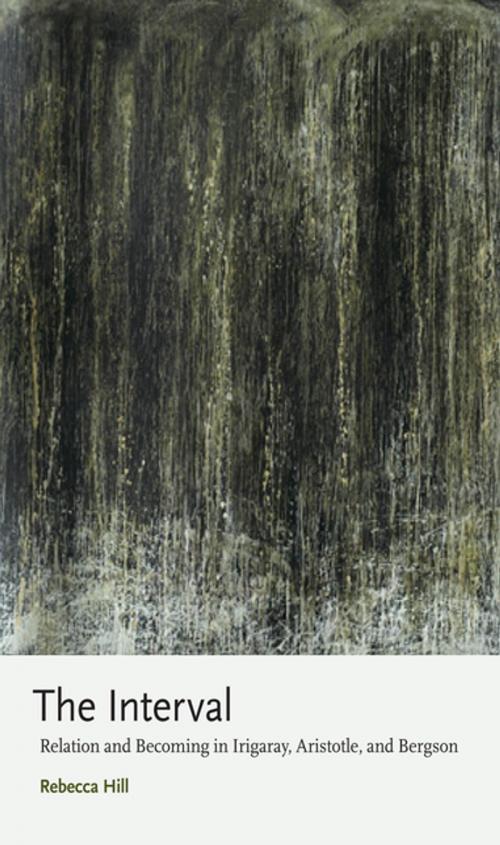The Interval
Relation and Becoming in Irigaray, Aristotle, and Bergson
Nonfiction, Religion & Spirituality, Philosophy| Author: | Rebecca Hill | ISBN: | 9780823263912 |
| Publisher: | Fordham University Press | Publication: | November 14, 2014 |
| Imprint: | Fordham University Press | Language: | English |
| Author: | Rebecca Hill |
| ISBN: | 9780823263912 |
| Publisher: | Fordham University Press |
| Publication: | November 14, 2014 |
| Imprint: | Fordham University Press |
| Language: | English |
The Interval offers the first sustained analysis of the concept grounding Irigaray’s thought: the constitutive yet incalculable interval of sexual difference. In an extension of Irigaray’s project, Hill takes up her formulation of the interval as a way of rereading Aristotle’s concept of topos and Bergson’s concept of duration.
Hill diagnoses a sexed hierarchy at the heart of Aristotle’s and Bergson’s presentations. Yet beyond that phallocentrism, she points out how Aristotle’s theory of topos as a sensible relation between two bodies that differ in being and Bergson’s intuition of duration as an incalculable threshold of becoming are indispensable to the feminist effort to think about sexual difference.
Reading Irigaray with Aristotle and Bergson, Hill argues that the interval cannot be grasped as a space between two identities; it must be characterized as the sensible threshold of becoming, constitutive of the very identity of beings. The interval is the place of the possibility of sexed subjectivity and intersubjectivity; the interval is also a threshold of the becoming of sexed forces.
The Interval offers the first sustained analysis of the concept grounding Irigaray’s thought: the constitutive yet incalculable interval of sexual difference. In an extension of Irigaray’s project, Hill takes up her formulation of the interval as a way of rereading Aristotle’s concept of topos and Bergson’s concept of duration.
Hill diagnoses a sexed hierarchy at the heart of Aristotle’s and Bergson’s presentations. Yet beyond that phallocentrism, she points out how Aristotle’s theory of topos as a sensible relation between two bodies that differ in being and Bergson’s intuition of duration as an incalculable threshold of becoming are indispensable to the feminist effort to think about sexual difference.
Reading Irigaray with Aristotle and Bergson, Hill argues that the interval cannot be grasped as a space between two identities; it must be characterized as the sensible threshold of becoming, constitutive of the very identity of beings. The interval is the place of the possibility of sexed subjectivity and intersubjectivity; the interval is also a threshold of the becoming of sexed forces.















